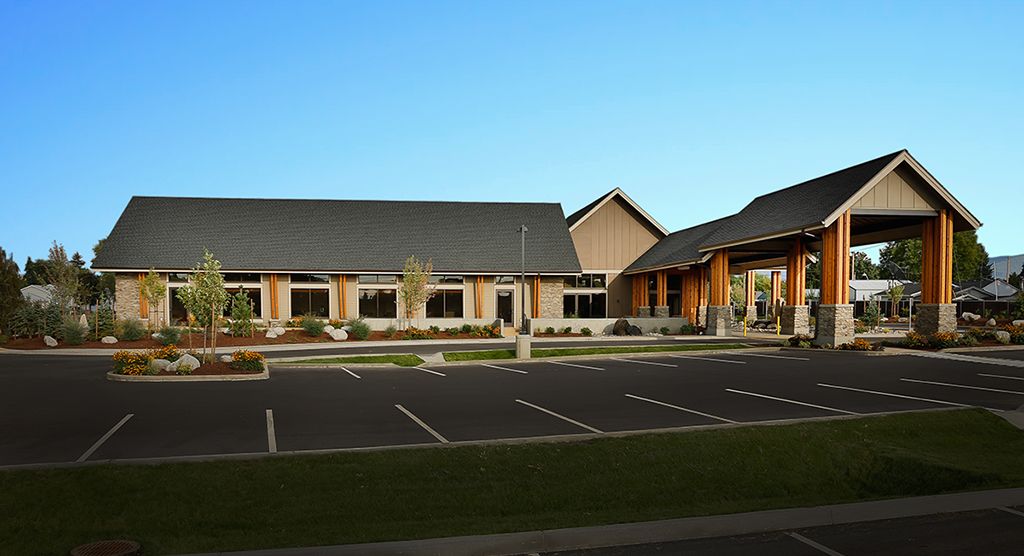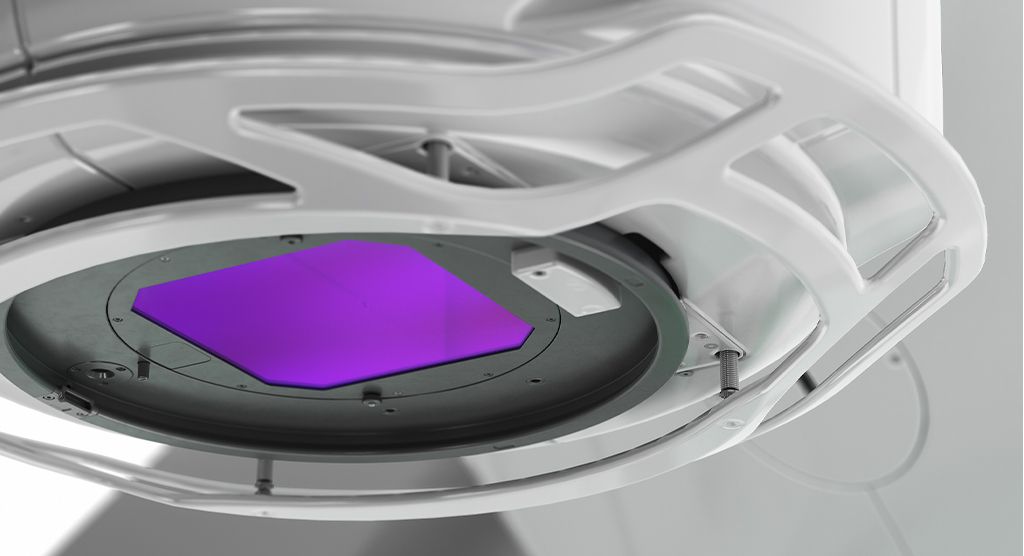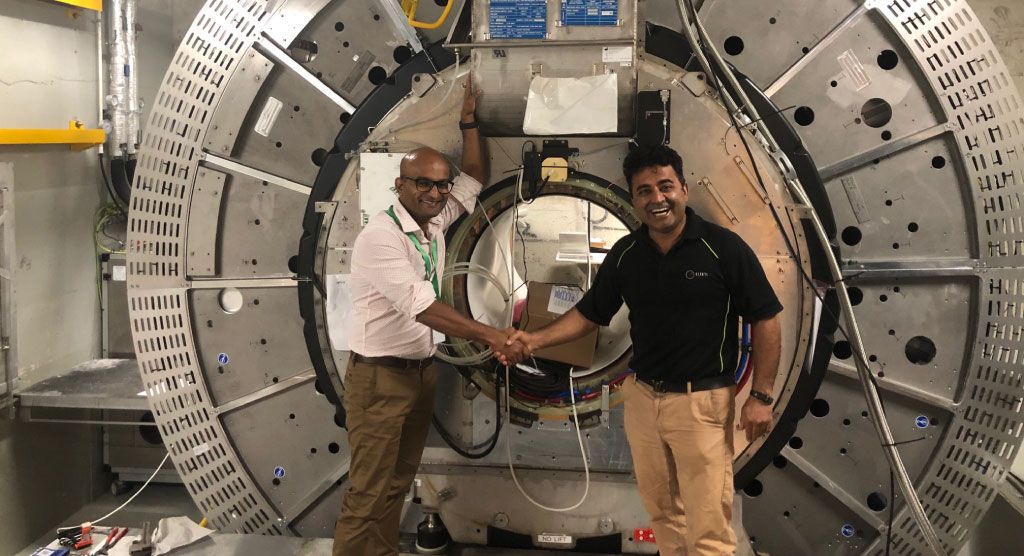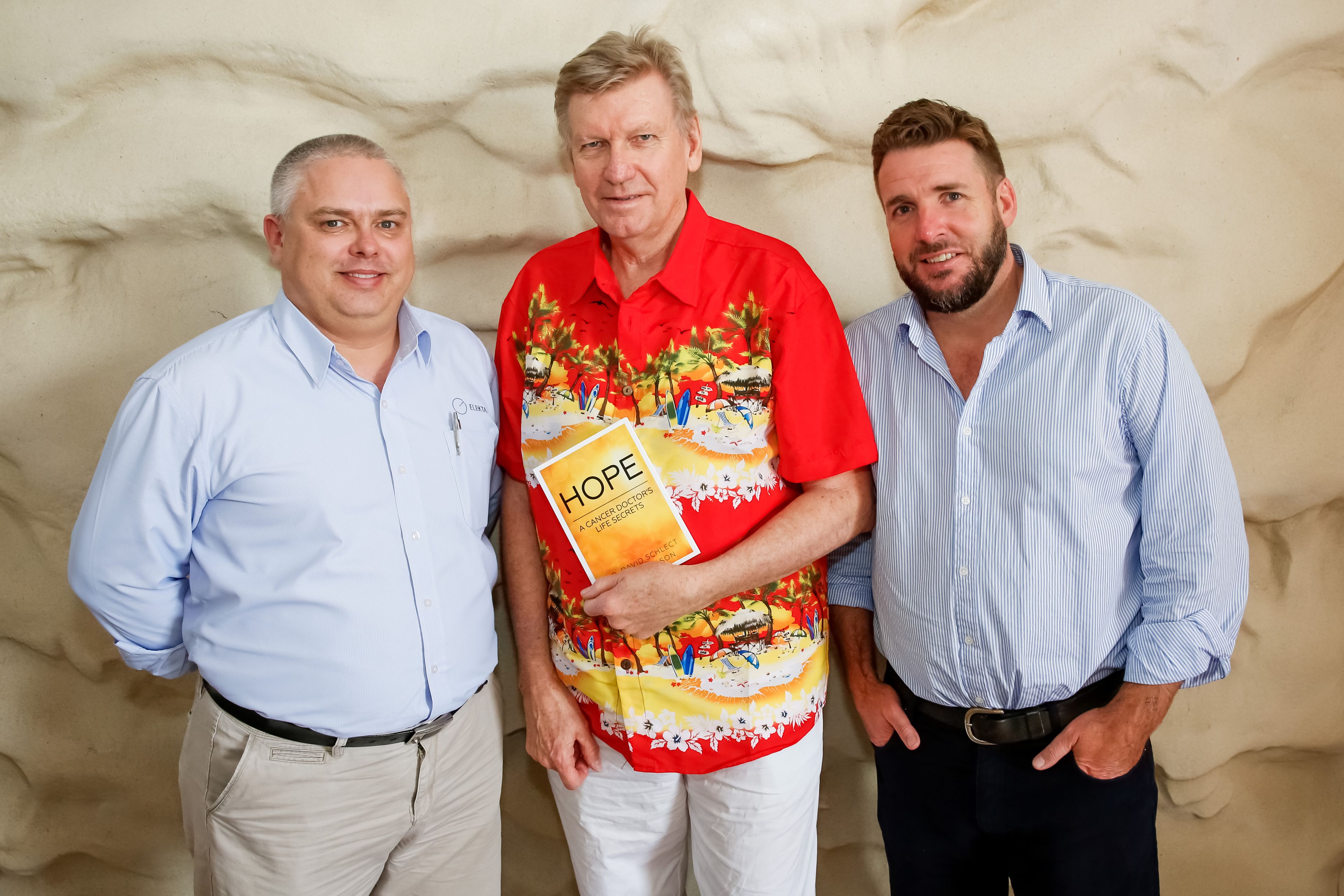MidMichigan Health’s Sara Morel is Elekta’s 2020 Registrar of the Year
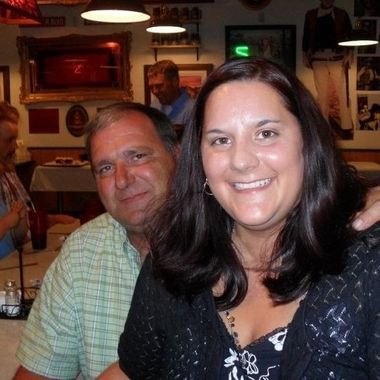
Morel dove into profession from career in infusion center

Sara Morel, AAS, BS, CTR, Lead Cancer Registrar for MidMichigan Health (Midland, MI) was selected as Elekta’s 2020 Registrar of the Year, an honor that the company bestows on certified tumor registrars (CTR) who have made critical contributions to the success of their registry and profession.
We recently spoke with Sara about her career path, the importance of cancer registries (see sidebar: What is a cancer registry) and the activities she has engaged in over the last six years that earned her the distinction of Registrar of the Year.
Elekta: How long have you been a CTR?
Sara Morel (SM): I began working in MidMichigan’s cancer registry in 2013, then took the exam to qualify as a CTR in 2014 and I became the Lead Cancer Registrar in 2015. Before that, I was working in the infusion center doing the chemotherapy insurance verification and scheduling from 2011 to 2012.
Elekta: What made you make the switch from the infusion center to the cancer registry?
SM: In 2010, my father was diagnosed with non-Hodgkin’s lymphoma at age 48. Although he had a bone marrow transplant, he was considered in remission for just 20 days before it came back with a vengeance. The disease had transformed into diffuse large B-cell lymphoma. He lived 18 months after his transplant and this Friday [August 21, 2020] it will be eight years since he died.
After my dad passed away, I was struggling to work in the infusion center. It’s not that I didn’t want to help cancer patients, but I was there every day around patients that reminded me of my father. It just made me sad and it was really hard to handle. That’s when my manager told me about the position in the cancer registry.
I took training through the State of Michigan every Friday for six months. It was intense coursework and at times I felt like I was in over my head. But I persevered, got through the state training, then took all my classes through the American Health Information Management Association and passed the CTR exam.
Elekta: What are the emotional and intellectual traits necessary to be a stand-out CTR?
SM: There has to be some kind of emotional connection. Anyone who works in oncology – from the doctors, nurses, administrative staff and all oncology staff to our director and registrars – you have to have an emotional connection to an oncology patient, because they’re different. They are usually sicker and lot of them don’t survive, but then a lot of them do – it’s a sad job at some points, but there are also happy moments. So, it’s dedication and perseverance to try to make some kind of impact so that they can survive.
Intellectually, you gain an appreciation that data drives patient care, outcomes and ultimately influences survival rates. It all comes from the registry. By collecting excellent data and getting it to cancer centers and researchers, we can help caregivers make informed decisions about treatments that might work better for particular patients. For instance, which is better: chemotherapy or immunotherapy? I have seen that shift since I have been a CTR that more patients are getting immunotherapy And very likely, the data we collect plays a strong role in this trend and others like it.
The cancer registry is the heart of the cancer program. For those 385 items per case that we abstract, we can run a report for anyone who wants it and is authorized requestor to have it, be that the cancer center director, cancer researchers or administrative staff. It’s very rewarding to be able to provide the data to show them that it is right there at their fingertips.
Elekta: The person who nominated you said you have been particularly enthusiastic about sharing the abstracting guides that you created at MidMichigan Health. Can you tell me about these?
SM: In a cancer registry, abstracts organize and summarize information in a patient’s medical record for each tumor. The abstract includes patient demographics, diagnostic studies, staging, treatment and follow-up.
I got very interested in sharing best practices by creating guides that indicate what’s required and how we at MidMichigan Health are documenting it. I share a lot of these guides on social media and do it on my own time. I have received a tremendous response from people in all 50 states. New CTRs sometimes don’t know where to start, because every center has different things they track. They can use the guides I create in Word and customize them however they need to.
Elekta: You’ve been involved in leading or presenting at local and national CTR meetings, as well. What are those about?
SM: Our annual state meeting includes many CTRs, but we sensed a need for smaller group roundtable meetings to talk about different topics. Our first one this year was on January 31, which I and my colleagues led the way. It was pre-Covid-19, so we met in person at our hospital. A representative from 18 Michigan hospitals attended. I took a picture of it and put it on my LinkedIn page, which has gotten 800 views so far. The next one was a two-hour webinar in April and in October we’re doing to do another remote meeting called “Let’s Catch Up,” because there have been so many changes since January. That meeting will cover all of the new templates that are now required from the Commission on Cancer.
Because I have been so active in sharing our best practices, I was also invited two consecutive years, in 2018 and 2019, to present at the North American Association of Central Cancer Registries (NAACCR), which was awesome. It’s so rewarding that there is such collaboration to help and support CTRs with education and training.
Elekta: You also mentor up and coming CTRs I understand. Can you tell me about that?
SM: I started mentoring a couple months ago, by giving remote presentations twice a month to students at Rochester Community Technical College. I also do some mentoring for NCRA so they’ll reach out and ask me if I can take on a student.
I also get emails and texts on a daily or weekly basis from students asking for help and I do my best to get back to them. It’s mentoring, in a sense, because I will answer if they contact me. In fact, yesterday a CTR called me from Texas yesterday, which I thought was a spam call. I answered anyway and spoke with her because my cell phone number is out there. I’ve talked to her before – we had become Facebook friends and she was asking for advice. I will take calls, messages and emails from anyone if they have a question and I do my best to get back to them. I’m still learning but I just try to help out as much as I can.
Elekta: MidMichigan Health uses Elekta’s METRIQ® cancer registry data management solution. What are some things you like about this product?
SM: We’ve used METRIQ for many years. I really like using the Query Wizard to create reports to pull data and the reports are easily customizable. The UDF-User defined fields are great, because they enable me to customize data items that we want to collect internally. The layout and flow of METRIQ also work really well and is easy to understand. The Elekta support staff if always pleasant and very helpful each time we need to reach out to them for assistance.
Elekta: What are your thoughts on being named Elekta’s Cancer Registrar of the Year?
SM: I am very honored and humbled by this award and it is very much appreciated, but I couldn’t do my job nearly as effectively without my team of CTRs, our entire Integrated Network Cancer Program – which includes physicians, nurses, cancer navigators, administrative staff and all other oncology staff – in addition to my director Joan Herbert, Pharm.D., director of the oncology service line, MidMichigan Health, and also our Chief of Oncology Melwyn Sequeira, MBBS, MD, FRCS (Eng), FACS. They are very engaged and that allows us to be very effective and efficient with all aspects of the registry. Historically, MidMichigan Health cancer programs have been accredited as individual facilities, but in July 2019, we underwent our very first accreditation survey as an Integrated Network Cancer Program, and were awarded a three-year Accreditation with Commendation from the Commission on Cancer-American College of Surgeons. This showed what strong teamwork and leadership can achieve.
I’m thankful to be a part of a great career filled with many passionate CTRs whom I have gotten to know. Overall, it’s a collective effort between CTRs all over the nation with the goal to share best practices and to treat each patient the best that we can and this all begins with excellent data collection.
What is a cancer registry?
A cancer registry collects and combines detailed information about cancer patients and the initial treatments they receive to answer questions, such as:
- Is there a certain area of a state where women are finding out they have breast cancer at a late stage, when it’s harder to treat?
- Where will prevention efforts, like screening, have the biggest benefit?
- What groups of people are most likely to get a certain type of cancer, such as liver or skin cancer?
Cancer registries analyze the data collected and share the answers to these questions with other groups, like state comprehensive cancer control coalitions, which work to prevent cancer. These groups may find that some people are not getting cancer screening tests, or they are making choices that raise their chance of getting cancer. The data may also show that certain groups of people are getting cancer more than others.
Cancer control groups and advocates work to address the problems identified. Then they look to cancer registries for new information to help them know if their solutions are working.
Source: https://www.cdc.gov/cancer/npcr/value/registries.htm
Enjoy the article?
Feel free to share.
